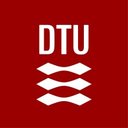DTU – Technical University of Denmark
PhD scholarship in Robust and Interpretable Deep Learning: Predicting Fetal Development from Ultrasound Imaging – DTU Compute
Job Description
At present, the monitoring of fetal development during pregnancy relies heavily on simple predictive formulas that require high quality ultrasound images. Such high quality imaging is often unrealistic, but even when possible the available predictive models are limited in their predictive performance.
Join an interdisciplinary team of researchers working to create an enhanced understanding of fetal development through multimodal data and interdisciplinary collaboration between clinicians, statisticians and machine learners. As a PhD student, your main responsibility will be to develop robust and interpretable models based on a large ultrasound imaging database. Your work may include foundation models, temporal models, uncertainty quantification and explainable AI, as well as collaborating closely with both clinical PhD students as well as technical PhD students working with complimentary data modalities.
If successful, your work will contribute to better and more robust prenatal care for mother and child.
Responsibilities and qualifications
Your overarching responsibility in the project will be to build large-scale ultrasound image models catering to various predictive tasks relating to fetal development. This will be done in collaboration with clinicians and technical researchers from Rigshospitalet and the University of Copenhagen.
Your primary tasks will include:
- Developing predictive models for fetal ultrasound
- Incorporating fetal ultrasound into larger multimodal foundation models for fetal development in collaboration with other technical researchers
- Developing tools to ensure their robustness, fairness and interpretability
- Research on uncertainty quantification for these models, including translating uncertainty quantification to clinically relevant feedback
- Validating predictive models in close collaboration with clinical partners, and interfacing image-based models with other modalities
- Writing and presenting scientific work at top conferences and journals
- Work as a teaching assistant in four 5 ECTS modules
You must have a two-year master’s degree (120 ECTS points) or a similar degree with an academic level equivalent to a two-year master’s degree.
Approval and Enrolment
The scholarship for the PhD degree is subject to academic approval, and the candidate will be enrolled in one of the general degree programmes at DTU. For information about our enrolment requirements and the general planning of the PhD study programme, please see DTU’s rules for the PhD education.
Assessment
The assessment will be made by Aasa Feragen and Anders Nymark Christensen from DTU Compute.
We offer
DTU is a leading technical university globally recognized for the excellence of its research, education, innovation and scientific advice. We offer a rewarding and challenging job in an international environment. We strive for academic excellence in an environment characterized by collegial respect and academic freedom tempered by responsibility.
Salary and appointment terms
The appointment will be based on the collective agreement with the Danish Confederation of Professional Associations. The allowance will be agreed upon with the relevant union.
The period of employment is 3 years. Starting date is 1 April 2025 (or according to mutual agreement). The position is a full-time position.
You can read more about career paths at DTU here.
Further information
Further information may be obtained from Aasa Feragen, [email protected].
You can read more about DTU Compute at www.compute.dtu.dk.
If you are applying from abroad, you may find useful information on working in Denmark and at DTU at DTU – Moving to Denmark. Furthermore, you have the option of joining our monthly free seminar “PhD relocation to Denmark and startup “Zoom” seminar” for all questions regarding the practical matters of moving to Denmark and working as a PhD at DTU.
Application procedure
Your complete online application must be submitted no later than 15 January 2025 (23:59 Danish time). Applications must be submitted as one PDF file containing all materials to be given consideration. To apply, please open the link “Apply now”, fill out the online application form, and attach all your materials in English in one PDF file. The file must include:
- A letter motivating the application (cover letter)
- Curriculum vitae
- Grade transcripts and BSc/MSc diploma (in English) including official description of grading scale
You may apply prior to obtaining your master’s degree but cannot begin before having received it.
Applications received after the deadline will not be considered.
All interested candidates irrespective of age, gender, disability, race, religion or ethnic background are encouraged to apply. As DTU works with research in critical technology, which is subject to special rules for security and export control, open-source background checks may be conducted on qualified candidates for the position.
DTU Compute
DTU Compute is a unique and internationally recognized academic department with 385 employees and 11 research sections spanning the science disciplines mathematics, statistics, computer science, and engineering. We conduct research, teaching and innovation of high international standard – producing new knowledge and technology-based solutions to societal challenges. We have a long-term involvement in applied and interdisciplinary research, big data and data science, artificial intelligence (AI), internet of things (IoT), smart and secure societies, smart manufacturing, and life science. At DTU Compute we believe in a diverse workplace with a flexible work-life balance.
Technology for people
DTU develops technology for people. With our international elite research and study programmes, we are helping to create a better world and to solve the global challenges formulated in the UN’s 17 Sustainable Development Goals. Hans Christian Ørsted founded DTU in 1829 with a clear mission to develop and create value using science and engineering to benefit society. That mission lives on today. DTU has 13,500 students and 6,000 employees. We work in an international atmosphere and have an inclusive, evolving, and informal working environment. DTU has campuses in all parts of Denmark and in Greenland, and we collaborate with the best universities around the world.



